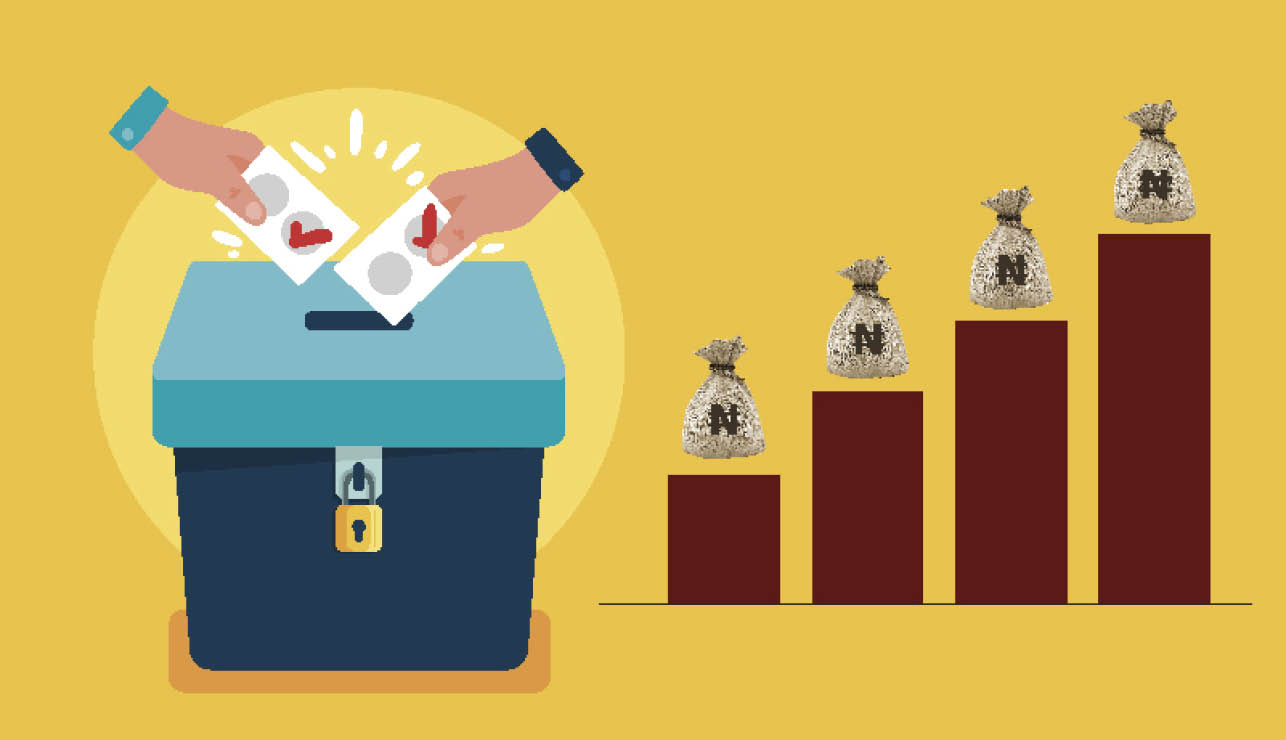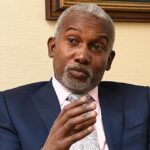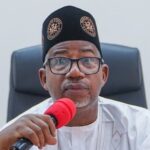In the same way that Nigeria won and defeated violence, intrigues, and intimidations that ushered and characterized the Saturday February 25, 2023 presidential and national assembly elections which are now history; we are hopeful and prayerful that the same victory of peace and goodwill shall play out in the governorship and state assembly elections earlier for scheduled for today, but had to be postponed for reasons of Bimodal Voter Accreditation System (BVAS) re-configuration to Saturday March 18, 2023.
Nonetheless, it is discernable to every keen observer in Nigeria that the road to presidency and the 469 seats in the national assembly is as crazy as the cost of processes leading to them. With all the usual build-ups to general elections in Nigeria, any opinion that says “elections are war in Nigeria” would be adjudged to be correct. For the conduct of the 2023 presidential election, for instance, government deployed over 425,000 security personnel across the country; the biggest deployment in the Nigeria’s history of general elections. This, as part of the cost of election in Nigeria, has massive implications in monetary terms. This figure which includes deployments from the army, the air force, the navy, the police, the DSS, and the civil defense corps is huge enough to displace any existing records of single security deployment in the Guinness Book.
The Central Bank of Nigeria (CBN)’s bullion vans and the Nigerian Air Force jets were separately engaged for transporting sensitive election materials to state capitals. All these place huge financial burdens on government. The navy is involved in shipping election materials to coastal areas of the country. Land borders had to be closed, vehicular movements restricted from 6am to 6pm, market stalls locked up for the whole day, and local airlines shut down their operations. Several other sectors were made to suffer for the sake of electing leaders for the country. Each of these measures has adverse consequences on the nation’s economy. This is part of the cost of election in Nigeria.
Beyond the cost of huge security deployments and the shutdown of commercial activities is the shutting down of systems that are far unconnected to election duties. It’s lamentable that the entire educational system was shutdown for elections, even as elections traditionally hold on weekends (Saturdays, and by extension, Sundays). Sadly, no one is speaking for Nigeria’s dysfunctional system of education even after the election-vacation is expected to extend from the initial three to four weeks due to the shift in the date of governorship election. The time that could have been utilized by learners and their teachers at all levels to salvage the failing system has been lost to elections. More worrying is how the leaders that emerged from every round of elections in the recent past contributed to worsening the woes of education in Nigeria.
News FCT Muslim pilgrims’ board director assumes duty
ECOWAS raises concern over use of fake news ahead of Nigeria polls
The cost of purchasing party nomination forms in addition to the cost of primary elections are as huge as all that transpire in general elections. Analyzing the build-up to primary elections by political parties, this column published a piece on this same page on Saturday May 14, 2022 with the title “So, Nigeria is this rich?”. In that piece, this writer x-rayed the extremely expensive nature of politics, political campaigns and elections in Nigeria. The repeat of these pricy experiences every four years is not good for Nigeria, which as a developing country, requires enormous resources to provide all the basic infrastructure that the country lacks in its health, education, transport and agricultural sectors.
Besides the cost of nomination forms is the expenditure incurred by a party’s presidential flag-bearer who, throughout the campaign period, would have to be travelling in chattered aircrafts. The parking charges alone, where the aspirant owns a private jet, are crazily whopping. Governorship candidates would need to charter buses to convey his crowd of supporters to every part of the state. Other sundry spending by candidates vying for elective positions include paying (where necessary) for hired crowds at political rallies, and allowances for party agents at polling units.
One could only imagine the huge resources needed to be deployed by a politician to settle all electioneering bills including paid adverts on television channels, radio stations, outdoor billboards, posters, flyers, newspaper advertorials, purchase of motorcycles for thugs, and gifts of fairly-used cars to select party supporters. Others may include printing of key holders, face caps, memo pads; customized T-shirts, and handbags. These are aside of paying for casual performances by musicians, comedians, praise singers, and snake charmers at political rallies. This crazy cost of elections is in a country where many citizens cannot afford three square meals in a day. It’s in the same country where most young able-bodied boys scavenge refuse dumbs for ‘survival’.
Narrating his experience as an election observer in one of the general elections in Kenya, Professor Attahiru Jega said he did not notice huge deployment of security personnel for election duties such as the kind Nigeria was still known for. He said presiding officers were at designated polling centers, sometimes under tree shades, with voting materials; yet without the presence of special security operatives. When voters have cast their votes, the natural breeze from trees sometimes blow and lull the officials into deep sleep as they waited for the voting time to end.
Needless to say, that such relaxed situations are owed to the value orientation of citizens. While the BVAS device was designed to avert voter impersonation and multiple or over-voting, ethical-related issues are still part of the challenges that are not tractable with technology for now.
To check infractions that sprout from moral degeneration, the National Orientation Agency (NOA), which has the statutory mandate of re-orientating citizens’ character needs to live up to its expectations. Although NOA’s consistent excuse relates to under-funding, it’s unconceivable that government would starve an agency it created to solve a critical social malady.
It’s time Nigeria realizes the dangers of continuing on the path of crazy cost of general elections every four years because such portends national ruin if nothing is done to reverse the trend. May Allah guide us as a country to initiate and implement a strategic, all-inclusive and aggressive programme of ethical re-birth for the good of Nigeria and Nigerians, amin.

 Join Daily Trust WhatsApp Community For Quick Access To News and Happenings Around You.
Join Daily Trust WhatsApp Community For Quick Access To News and Happenings Around You.


